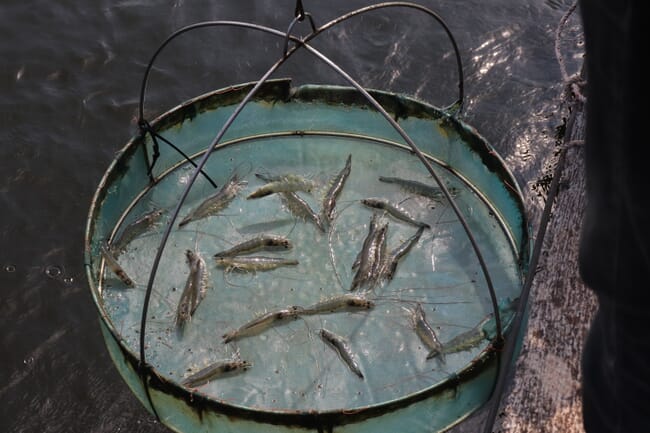
Called Umitron Eagle, the Singaporean firm says that the system “uses advanced AI detection to track multiple real-time biological conditions and other factors in highly turbid and intensive production environments”.
In recent decades, the global industry has been primarily centred around the Pacific white shrimp (Litopenaeus vannamei). However, despite seeing exceptional growth in the sector, Umitron notes that the industry is still plagued by many issues – including disease outbreaks, general health management and poor environmental management protocols that can lead to mass mortality events and disrupt the supply chain.
According to Umitron, the poor uptake and adoption of digital technology by shrimp producers has also been one of the limiting factors stunting the sector's growth, both economically and sustainably.
While solutions exist to remotely control feeding (via timer-based automatic feeders) and monitor environmental parameters using sensors, they are currently unable to analyse the real-time conditions of the shrimp. This is further exacerbated by the fact that most farming environments have poor visibility (ie high turbidity) and that digital transformations have been slower and more limited for shrimp than their fish counterparts.
Umitron says it has spent a couple of years developing a solution to assess shrimp production conditions in real-time using customised AI algorithms. These include, but are not limited to, real-time appetite analysis, health and growth conditions, and biomass. While important, these metrics are not always actively charted and monitored, due to a lack of available resources and solutions on the market, be it manpower or automation-wise.
“With Umitron Eagle, producers can now optimise their feeding protocols easily and automatically using real-time analytics. In addition to the current partnership with Charoen Pokphand Foods (CPF), Umitron would also like to extend this solution to other shrimp farmers to improve the operations at their production sites,” the company notes.
According to Umitron, shrimp producers using the product can expect to achieve:
- Improvements in FCR, growth and harvest amounts for each crop.
- Improved biosecurity measures and work protocols.
- A reduction in feed waste, which may contribute to undesirable environmental conditions such as poor water quality and highly-turbid conditions and require frequent water changes.
- Better long-term farming management protocols and optimised operations using the accumulated production data.
“In this way, Umitron will help strengthen the resilience and growth of the shrimp production landscape, and achieve a more sustainable production environment and footprint in super-intensive farming conditions. The company is keen on connecting with producers who operate intensive and advanced shrimp farms and are interested in implementing digitisation technologies to take their production to a higher level,” they add.




